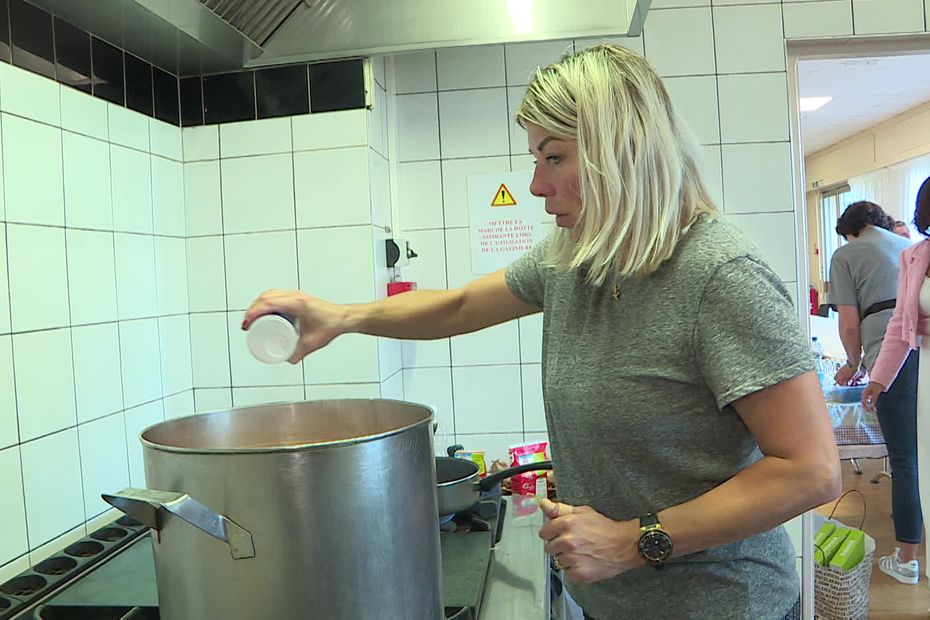The Ukraine Dijon-Besançon association held a solidarity dinner on Friday 27 May. The opportunity for refugees and volunteers to discover the flavors of the country.
To see them smile, around the banquet, no one would guess that these hundred people came there, in support of a much more austere cause. The Ukraine Dijon-Besançon association organized a solidarity dinner on Friday 27 May. A way to raise funds and buy an ambulance to send to the front.
In the kitchen, refugees and volunteers cook up small dishes. Bortsch, Vareniki, Holubtsi… The list does not end. The atmosphere is cheerful. Everyone wants to taste the flavors of the country, but also share a more serene moment. “I am of Ukrainian origin and I have been in France for 30 years. Today, it is a question of being together, with the refugees, and through this meal, I want to help Ukraine”, explains Irina Riot-Szabat, while making her little ravioli.
–
War is never far away. Irina hosted some members of her distant family in Ukraine. Among them, her little distant cousin: Iryna Boiar. With a smile on her face, she and her sister prepare small sandwiches for the aperitif. Arrived two weeks ago, the 17-year-old girl tries to keep a link with her life before, before the war: “I follow the distance learning courses in my nursing school. We were used to it with the covid. And we had to do it again in February”, she says, looking shy. And suddenly, the conflict catches up with her. In a half-word, she breathes: “My father is in Donbass right now, he is fighting the Russian army, he is resisting.”
–
In the dining room, smiles and exclamations accompany the parade of dishes; sometimes served at tables, sometimes arranged on a large buffet. And the guests, who for the most part are new to Ukrainian cuisine, are enjoying themselves. Just look at the people who are reserving themselves.
–
Dinner can also put some balm in the heart. “Maintaining traditions, and remembering the flavors of the country, and exchanging, it’s important. It’s difficult to find yourself far from your country”, begins Liudmyla Belolynska. On his plate, stuffed cabbage. A dish traditionally eaten at weddings.
–
TThree months after the start of the war, the young woman often thinks of Kiev: “Time seems long, especially when I watch the news, and all these horrible things that are happening in my country.” His voice cracks. Liudmyla continues to work remotely for herself, but also for her relatives in Ukraine: she is the only one in the family who can do so. Then between two smiles, the young woman looks, amused, at her comrades at the table. A Burgundian ban resounds in homage to Ukraine.
–





